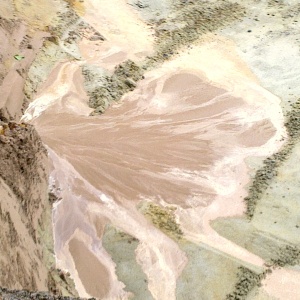Geoethics: theoretical and practical aspects from research integrity to relationships between geosciences and society

Recent years have seen a great growth of interest in geoethics among geoscientists. They have become more involved in discussions of the values which underpin appropriate behaviors and practices, wherever human activities interact with the geosphere. All branches of geosciences have ethical, social and cultural implications. Therefore, there is an evident need to develop an ethical framework for geoscience research and practices that can help geoscientists confronting ethical dilemmas and make them more aware of their responsibility in conducting their activities. Geoethical principles apply to geoscientists’ work across four equally important domains: the self, colleagues, society and the natural environment. Thus, the spectrum of geoethics topics is very broad. It includes issues of research integrity and professional deontology, data production and management, conflicts of interest, publishing ethics , the role of geoscientists in sustainable development, exploration and use of geo-resources and soil while meeting high standards of environmental protection, the defense of society against natural risks, and the impact of human activities and pollution on human health and the climate. It also encompasses the ethical implications of science communication and geo-education for society, and of geoheritage and geoparks as tools to raise public awareness of the importance of geoscience and the geosphere to our lives. Addressing discrimination in the geosciences, including on grounds of gender, ethnicity or disability, is also a geoethical matter; so is the role of Earth sciences in the economic and social development of low-income countries while respecting local cultures and traditions, and in promoting peace and intercultural exchange. Geoscientists have a fundamental part to play in addressing many of the most urgent problems affecting our planet and its population. Their technical knowledge and expert advice are vital for informed decision-making, and to ensure that education at all levels equips the citizens of the 21st century to participate in public debate about these challenges. Geoscientists with greater awareness of their ethical responsibilities towards themselves, colleagues, society and the environment will be better able to put their knowledge at the service of society, to communicate it effectively, and to grow public trust in science. The conveners invite abstracts on both practical and theoretical aspects of geoethics, including case studies. The aim of the session is to develop ethical and social perspectives on the challenges arising from human interaction with natural systems, to complement technical approaches and solutions, and to help to define an ethical framework for geoscientists‘ research and practice in addressing these challenges.
Geoscience for Society – Cross-cutting Experiences

This session likes to offer a forum for cross-cutting reflections, such as: (i) Weather is the earth science topic that gains attention in “prime-time”. What can other earth science topics do to received a similar sort of attention? (ii) Earth sciences are relevant for knowledge societies because they bear on economy, living conditions, individual well-being. How to relate this insight to citizens‘ experimental connections with the geosphere? (iii) Humanities, geosciences and narratives; how to weave humanities into narratives on anthropogenic global change and geoengineering?
Recipes for a mature Anthropocene

The early Anthropocene is a double challenge for its citizens: (1) modification of physical, chemical and biological mechanisms on planetary scales and (2) limited global governance of the economic and social processes that could regulate these modifications. Understanding the aggregated power of seven to nine billion people has led, during the last decade, to the notion of the “Anthropocene” as a paradigm for anthropogenic global change. The ongoing modifications of physical, chemical and biological processes on a planetary scale, nevertheless, are the unintended, incidental, and cumulative effects of individual activities, which however are driven by common cultural and social needs. Without mastering its collective operations, humanity is transforming planet Earth to meet humanity’s cultural and social choices as well as its needs, namely to appropriate resources for living. However, a range of concepts are being debated to address that double challenge, thus to moderate the undesired aspects of this transformation of planet Earth, such as conservation, protection, mitigation, decoupling, adaption or geoengineering. Drawing on such concepts, the participants at this session shall outline: What technological means, cultural concepts or philosophical views can help to address anthropogenic global change? What are the obstacles, opportunities or recipes? How can we replace humanity’s current role of a “sorcerer’s apprentice” with that of a conscious actor? What new approaches to sustainable development of human needs and activities can be conceived? How may we best draw on humanities and geosciences to build constructive approaches for a mature Anthropocene?
The text above reproduce the sessions proposal for EGU General Assembly 2016,
[…] Calling: Geoethics, Society and Anthropocene […]
LikeLike